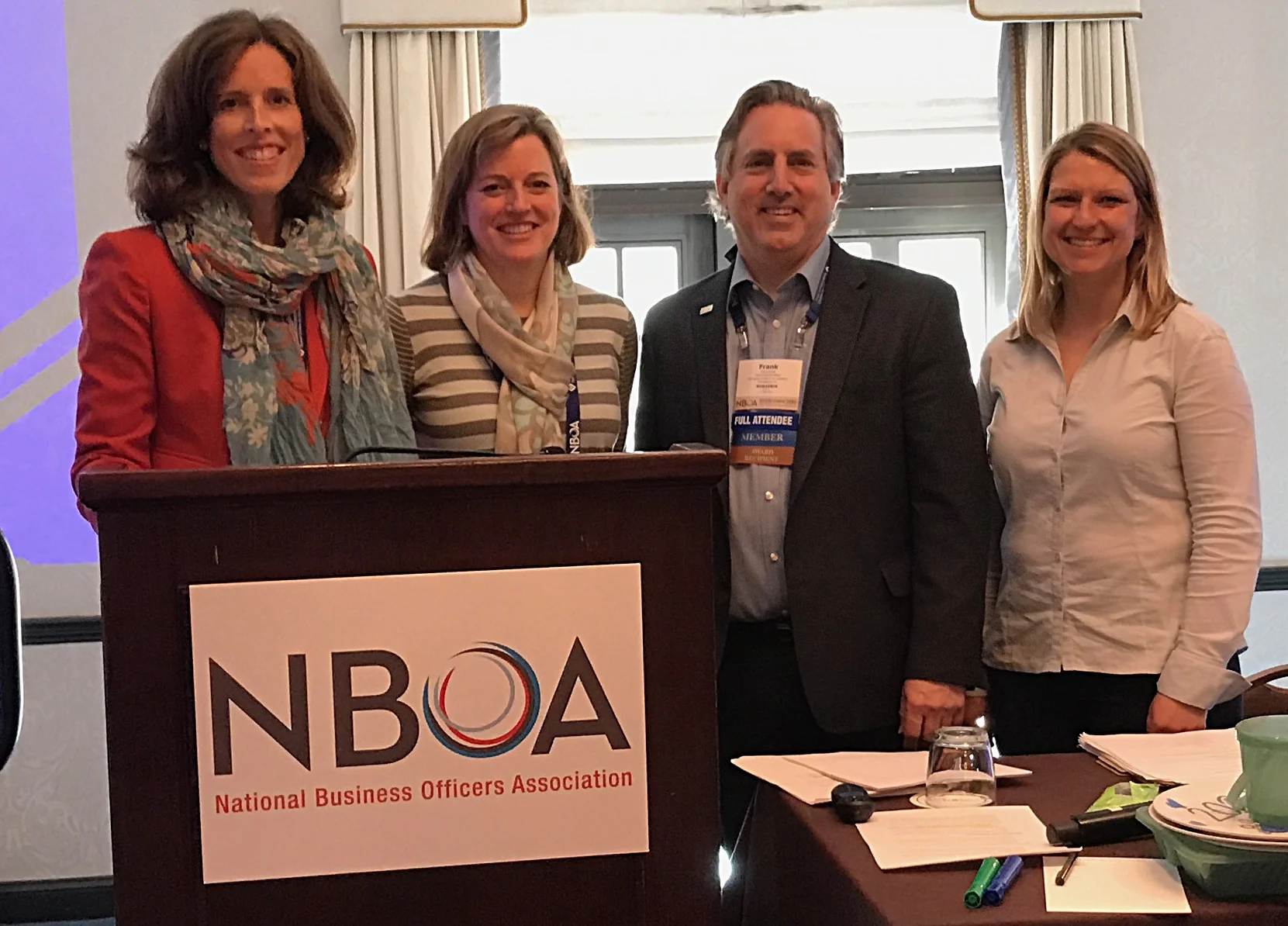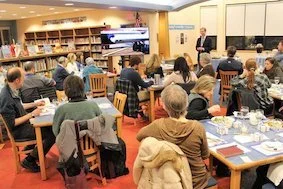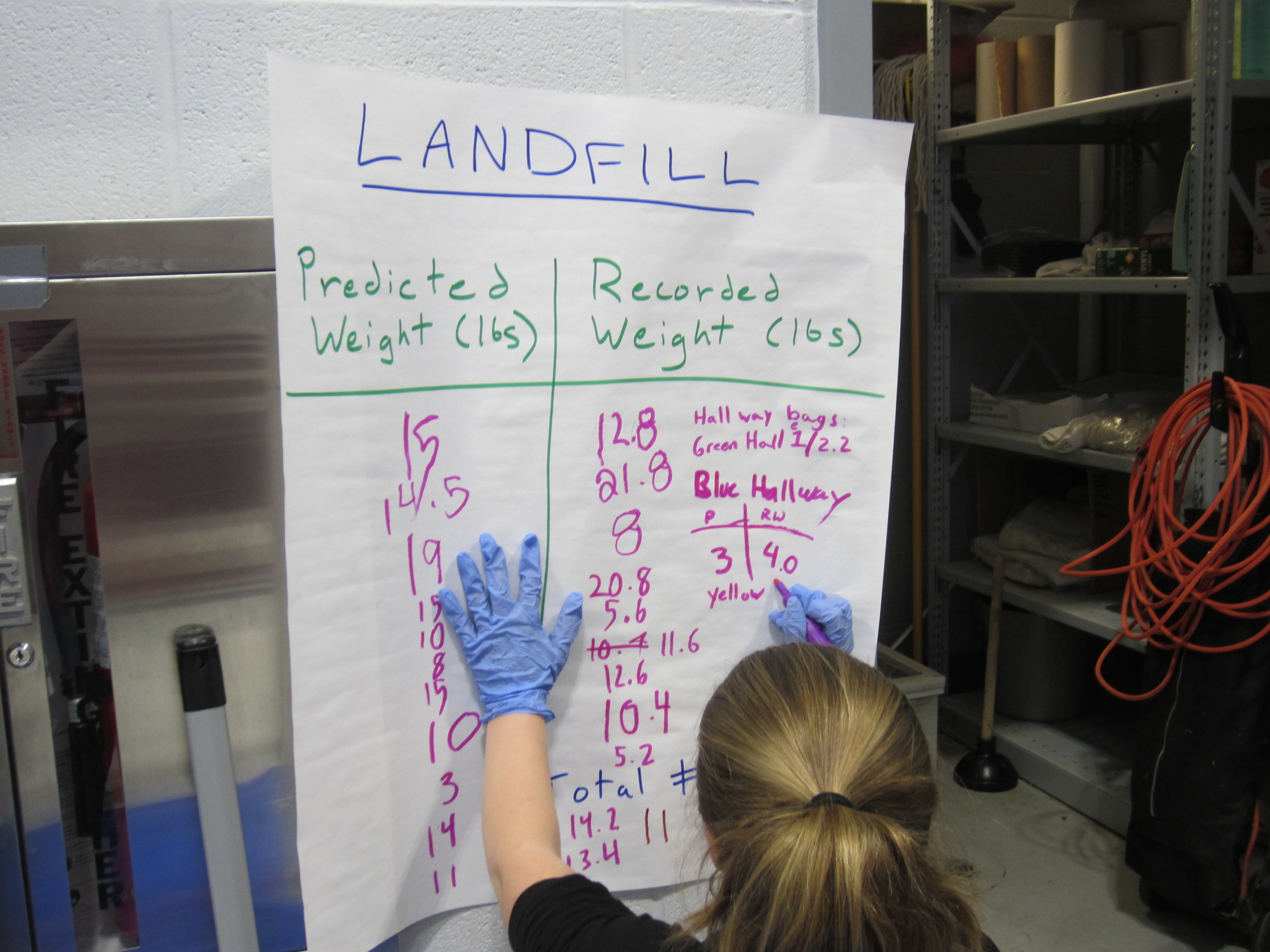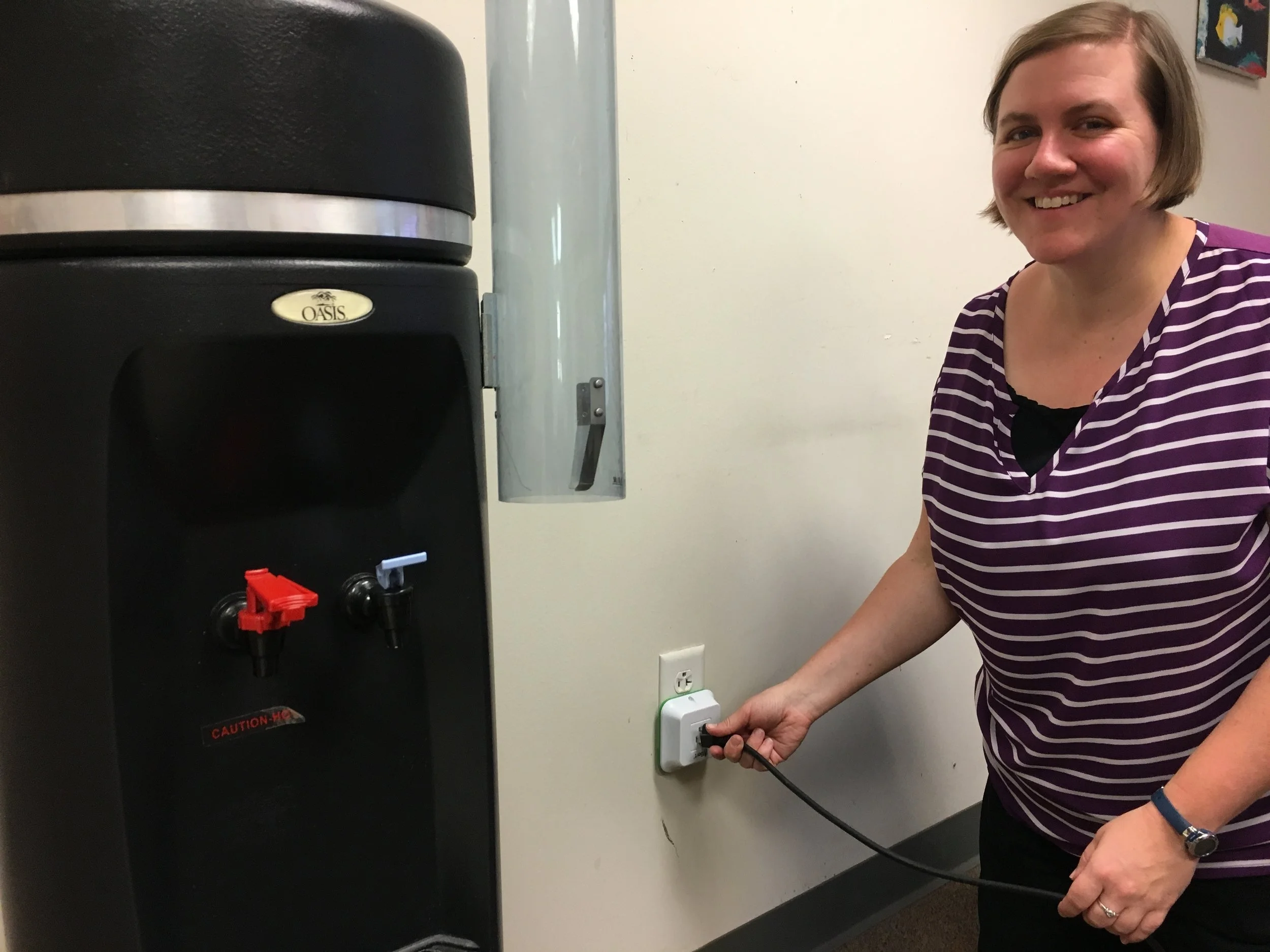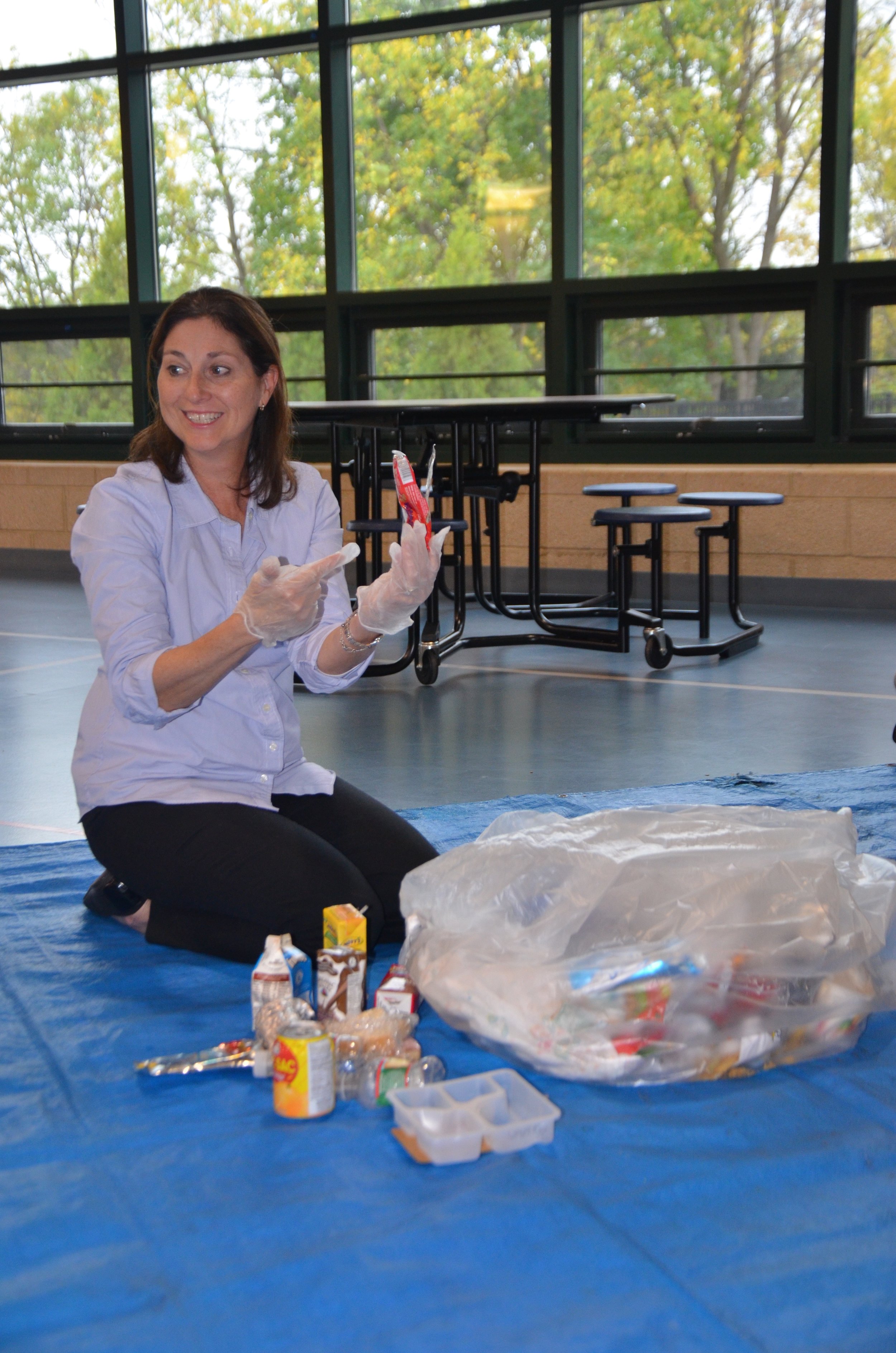Panelists at the PAISBOA Low Waste Virtual Meeting share their tips for reducing waste from changing behavior, to educating people about recycling right, to recycling electronic waste.
“Leading Change: Environmental Sustainability at Your School” Panel Discussion
On March 8, the PAISBOA Sustainability Group hosted a virtual panel discussion: “Leading Change: Environmental Sustainability at Your School.” Panelists included Lisa Carbone Warren, Director of Finance & Operations at Moorestown Friends School (MFS), and Carolyn Hapeman, Dean of Finance & Operations at Westtown School and Mary Ann Boyer of Boyer Sudduth Environmental Consultants.
Celebrating Trees: Is Your School Arboretum-Worthy?
Schools Re-imagine Outdoor Spaces
Studies show that being outside in nature has the ability to calm and heal. Spending as little as 15 minutes in nature lowers cortisol stress levels and blood pressure. Nature helps foster our creativity and observation skills. With the increase of screen time, we often forget to unplug and head outside.
Inspire Students with Hydroponic Kits
Courtyard Renovation Sparks a Green Future for Reading High School
While the 2019-20 school year may have been an unconventional academic year for Reading High School (RHS), it has been a year of green changes. During this time, the school created plans to transform its overgrown and underused interior courtyard into a welcoming outdoor classroom and natural refuge. Students and teachers of a “green team” led these efforts. Their hard work paid off: RHS became the first school in Berks County, PA to become a certified National Wildlife Federation Eco School, achieving the bronze award for its “schoolyard habitat” improvements.
A Picture is Worth a Thousand Words
Schools, Climate Change & Solutions: Sustainability Group at Ancillae-Assumpta
Thirty-three participants from 17 schools attended PAISBOA’s Sustainability Group meeting at Ancillae-Assumpta Academy on January 15, 2019; the topic: Schools, Climate Change & Solutions. Climate Reality Leadership Corps member and Haverford College’s Vice President & Chief of Staff Jesse Lytle gave a solutions-oriented presentation on climate change.
Red Clay School Goes Green: Cooke Elementary’s Waste Audit
How much waste does one elementary school produce each lunch period? This was the question that motivated William F. Cooke Elementary School’s Talented and Gifted (TAG) program students to conduct a waste audit on March 13th. Realizing that they needed to know what they were up against before they could make a change, the students of the TAG program at Cooke set out to find exactly what was in their waste
Cooke Elementary students predict how much waste they generate in the cafeteria before weighing each bag as part of their waste audit.
Teacher Christine Szegda received a grant from the Delaware Pathways to Green Schools Program. Ms. Szegda enlisted school sustainability consultants, Mary Ann Boyer and Sam York of Boyer Sudduth Environmental Consultants (BSEC) to help plan and run the audit. Together, they set the date for the first waste audit on March 13th and developed an agenda for the day.
When the day came, Ms Szegda’s TAG students, the Cooke Elementary Custodial staff, BSEC, and parent volunteers came together to make the day a success. The fact that it was chili day did not deter the TAG students, who eagerly investigated the waste in order to find the information that would let them develop an action plan for reducing waste.
What the students found was staggering: the school’s 653 students in grades K - 5 produced 153 pounds of trash and 13 pounds of recycling from just one day of cafeteria waste, and 33.4 pounds of liquid waste from emptied water and milk bottles. Using these numbers, we can estimate that in one week, the school produces 653 pounds of trash, 65 pounds of recycled materials, and 167 pounds of liquid waste. Imagine what those numbers are in a school year? But this is only a single school! As parent volunteer Lisa Call said, “Imagine how much is wasted in Delaware alone, not to mention the rest of the country.”
These numbers motivated TAG students to immediately pull together plans for how to reduce the amount of waste produced. Ms. Szegda and her students will develop an action plan for making changes to reduce waste and increase recycling. They will implement changes and conduct a second waste audit in the spring to compare their results with this first one. According to one student, "We want the cafeteria to stop using styrofoam lunch trays. They get used once and then sit in a landfill for thousands of years after!”
Students were surprised by how much food was thrown away each day. “After combing through unopened snack bags, unpeeled bananas, and half eaten lunches,” noted Ms Szegda, “they had a real ah-ha moment.” The students learned that the average American throws out 4.4 pounds of trash a day. After seeing the food waste, students began to think about more sustainable and affordable solutions. Giving students only as much food as they will eat and encouraging students to use the "share bin" would help reduce the amount of food that would end up in a landfill each day.
The students found some positive data too: almost everything that was put into the recycling was recyclable. They now know, however, just how big their task is. Over the coming weeks, Ms. Szedga and her students will look more closely at waste and help teach others about what they can do to lessen their environmental footprint. The students will review the data from the audit and develop an action plan for reducing the waste. Ms Szedga reflected, “Making effective change always takes hard work, but I’m sure the students will use their creative energy and enthusiasm to show others how to make Red Clay a greener place.”
Article submitted by Sam York, intern of Boyer Sudduth Environmental Consultants.
Getting Students Unplugged and Outside
Mary Ann Boyer and Kristin Kaye of Boyer Sudduth Environmental Consultants presented "Science and Storytelling: An Interdisciplinary Approach to Environmental Literacy" at the NSTA’s conference in Baltimore earlier this month. Boyer and Kaye shared their experiences on how scientific observation and storytelling open students’ eyes to the natural world. "Getting students outside and unplugged is important to their connection with nature," notes Boyer.
Beware of Energy Vampires: Reduce Your School’s Energy Bill by Tackling these Common Goblins
Envirothon Teachers Learn about Eco-Schools USA Program
NFA Wins Grant for Sustainability
Norwood-Fontbonne Academy received a grant from the Philadelphia Area Independent Schools Business Officers Association to address environmental sustainability and foster collaboration between the school and neighboring institutions.
NFA teamed up with its Parents Association, Chestnut Hill College, Morris Arboretum, and Boyer Sudduth Environmental Consultants to create a Collaborative Waste Initiative to reduce waste, increase recycling, and strengthen community ties.
Gardens, Water, & Food: The Hill School’s Sustainability Trifecta
PAISBOA Members Learn About Reducing Cafeteria Waste
On April 27, 2016 PAISBOA's Sustainability Affinity Group gathered to hear how to "Reduce your Environmental Footprint: One Bite at a Time" at Springside Chestnut Hill Academy (SCH). Sustainability consultants Mary Ann Boyer and Anne Sudduth of Boyer Sudduth Environmental Consultants and SCH science teachers, Marianne Maloy and Carie Szalay, used SCH's zero waste initiative as a case study.

